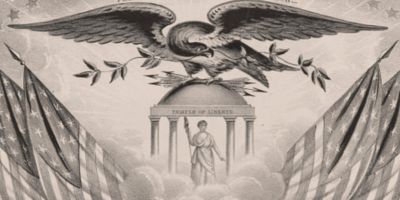By Danny Mayer
“Some places overmarket and underperfrom and others undermarket and overperform.”
Lee Todd, Fall 2006
On a sunny Wednesday afternoon, September 8, Lee Todd finally called it quits in front of a receptive, if somber, audience. Todd, CEO of the University of Kentucky, will retire effective June 30, 2011. Though he had not worked at any university for the 18 years prior to his becoming president of the state’s flagship university in 2002, Todd arrived to UK amidst much fanfare. He made turning UK into a nationally competitive research university, one ranked in the Top 20 of public universities, the signature issue of his tenure.
As a president with entrepreneurial business skills, Todd was a man of his times. A year before he was voted into UK, the U.S. had hired its first MBA president, George Bush II, to manage the Clinton-era assets with the acumen of a genuine certified businessman. By 2002, the stock market had rebounded from the internet bubble of the years before; led by business guru Alan Greenspan, it would soon be riding speculative real estate assets and oil futures even higher. Everyone was getting rich, it seemed.
Todd’s decade at UK should also prove to closely overlap the most speculative years of the academic bubble. His appointment to UK fit a larger national trend of presidential hires going to candidates with close ties to the business sector, people who saw themselves primarily as fund-raisers, managers of school assets, and brand pitch-men: corporate CEO’s first…university Presidents second and, occasionally, during any flare-up in sports, third. Their inflated salaries reflected this priority scale.
While citing a dire need to get a college degree, state legislatures raised tuition fees recklessly and college leaders slashed resources for undergraduate education. At the federal level, while social services got cut, “Homeland Security” funding after 9/11 funneled federal taxpayer money to any university needing to shoot up the rankings with some clean research money. In the meantime, the college degree—which forces most people into debt while also displacing them from the workforce during 4-6 prime years of their working life—officially replaced the high school diploma as the “must have” certificate for entrance into the job force.
And now, after the economic crash, Todd has chosen to leave just as the whole engorged academic beast shows signs of shitting its innards out.
Trickle-down education does not work
In Kentucky, Todd was the confident white intellectual face of this corporate-educational bonanza, the state’s corporate super-ego to former Louisville Dean Robert Felner’s id. No one dared question the architect of the Top 20 Business Plan, a document respected chiefly, Todd proudly noted to the end, by many smart national experts. The Plan—and the president who birthed it—were sacrosanct.
Todd’s Top 20 Plan amounted to a redirection of UK energies into creating a nationally recognized institution that would draw talented students, faculty and entrepreneurs to Lexington from across the state and globe.
Everyone agreed Top 20 would cost a lot of money and require heavy financing by the state, requiring most years between 10-30 million dollars in annual increases: $300 million one year, $310 million the next, $340 million the next. Everyone also agreed that to fund Top 20 the university will also need to make more from its university-generated revenue streams via sports, hospitals, research grants, speculative start-up companies, and other enterprises. Top 20 would also require, Todd repeated regularly through 2008 during tuition increases of 9, 10 and 12%, students to pay more for the good fortune of having Top 20 educations. Top 20 degrees aren’t cheap, he admonished students.
But not everyone has paid such a steep price. Some people have pocketed the 1.2 billion dollars in increased annual operating revenue, a 100% increase, that has accrued as a result of Todd’s decade-long Top 20 assault. Todd’s salary, for example, exceeds $500,000 yearly. Nationally competitive doctors, needed to boost the university’s ranking, also cost a lot of money. So do new hospital buildings that require annual funding for their additional energy inputs. Todd grew the budget very well, but only select pockets of the university actually directly benefited.
Todd has staked his Top 20 reputation on a trickle-down effect: pay high money to recruit the best in the field and build the best facilities in the field, and the rest will sort itself out. Students–bright students–will be attracted to the college because of these high-paid university stars.
Except of course, high paid superstars don’t really teach undergraduates (the primary purpose of any place designated a university)–they do research. And their superstar needs can also bankrupt your budget, making it difficult to pay those good educators who actually attempt to teach your students. UK, for example, touts the strong number of new faculty its Top 20 funds have allowed it to hire, but most of these lines are not likely teaching faculty. Those numbers have hovered at a little over 500 faculty teachers for nearly 10 years, while faculty with non-teaching (primarily research) designations have steadily increased. Ever the businessman, Todd seems to have put the halt on teaching faculty hires at the same time he supersized enrollment on the pretext that other Top 20 schools were gigantic, and UK should be like them, too. (Added bonus for CEO Todd: With increasing tuition costs, more students also meant more money to fund UK’s Top 20 coffers.)
Changing the slope of accomplishment
At his press conference, and with no real data to back up any significant positive results of his Top 20 plan, Todd said he was proud that he had helped “change the slope of accomplishment” at the university. It’s a corporate term, intentionally vague, designed to deflect attention when the numbers don’t match, which they don’t.
Todd has lost ground in every major statistical category used to measure Top 20 success, and not just since 2005 when he created his Top 20 Plan. UK’s rankings have—at their absolute best—flattened out during the entirety of Todd’s career. When plotted on a graph, UK’s slope of accomplishment over the past decade looks flaccid, more a drooping post-ejaculate recoil than a rising prick.
As it turns out, trying to be Top 20 puts negative stress on your rankings, at least if you follow the failed path Todd has taken. Two things should jump out at you about this state of affairs:
First, since at least 2004, Lee Todd has been seriously misleading students by equating their increased tuition costs to their investment in a Top 20 diploma. As the university has doubled tuition, the undergraduate experience has been the one consistently obvious failure of Todd’s ideas—a problem much greater than the ACT scores he’s blamed it on (stupid Kentuckians!). In only a decade’s time–Todd’s reign–students now pay double for a considerably worse education. Measured strictly in the dollars and rankings embraced by the business-minded Todd, student degrees have lost a staggering amount of value at exactly the same time their president has told them it’s more valuable.
Second, the Board of Trustees has given Todd an “A” on every evaluation he’s received while in office, nine consecutive “excellent” years, all based on measurable statistics of flat or no growth. Most recently, the Board rewarded his retirement announcement with a 51% pay raise, and then they backdated the checks one year just to help the guy out. Essentially, they’ve lavishly rewarded slightly below average work. By consistently inflating Todd’s grade, along with his salary, the Board has contributed to the deflationary value of UK student diplomas.
Already, the Herald Leader has slavishly defended the Top 20 ideology by blaming its failure on a lack of state funding. Its coverage featured over 20 voices, many private businessmen and political honchos throughout the state, that got splashed across several pages of coverage. Only 1 line, from former Trustee Ernie Yanarella, questioned Todd’s policies. The rest extolled Todd, all using more or less the same language, for introducing the state to entrepreneurialism and really, really embracing the Top 20 Dream.
The Leader‘s editorial board tells us that we shouldn’t look backward at the Top 20 wreckage. Everything’s fine at UK. It was just those scumbag politicians in Frankfort who fucked over the Dream and the Plan by not funding it; it was just that Kentuckians are too gosh darn stupid to realistically expect undergraduate education (measured by ACT score) to really improve in this poor state. It was decidedly not Lee Todd’s fault, nor his Plan’s fault.
In short, good idea, good execution. Unfortunate results.
Not looking back is certainly what the Herald Leader, a long-time supporter of UK Top 20 (and Todd), wants. It’s also what the Board wants, what Todd wants, and what the new UK president will want. Don’t look back, nothing to see there. Just embrace what Todd calls “the new normal” : $600,000 guaranteed salaries for UK presidents, no oversight over shitty progress from a board concerned with finding ways to increase its CEO’s salary, abysmal undergraduate education, nearly Top 20 research, the unflattering devotion of your school’s basketball coach, and a tuition tag over twice what it was 10 years ago.
You tell me: What hucksters stand to gain the most from this new normal? And what hucksters gained from making this the new normal?




Andrei Vorobiev
Danny, I had a question on numbers you quote (just to confirm, for it is useful). How to contact you? To send you an email?
Danny Mayer
Hi Andrei,
My email address is Mayer.Danny@gmail.com
Andrei Vorobiev
Good article. Everything is correct, except one thing: not everybody agreed that Top 20 needed a lot of money. Say, neither I, nor my wife – a current faculty trustee (much maligned by the Herald-Leader on Capilouto’s behal) – did. There are cheaper ways. Uunfortunately none of them was considered by UK presidents and the board.